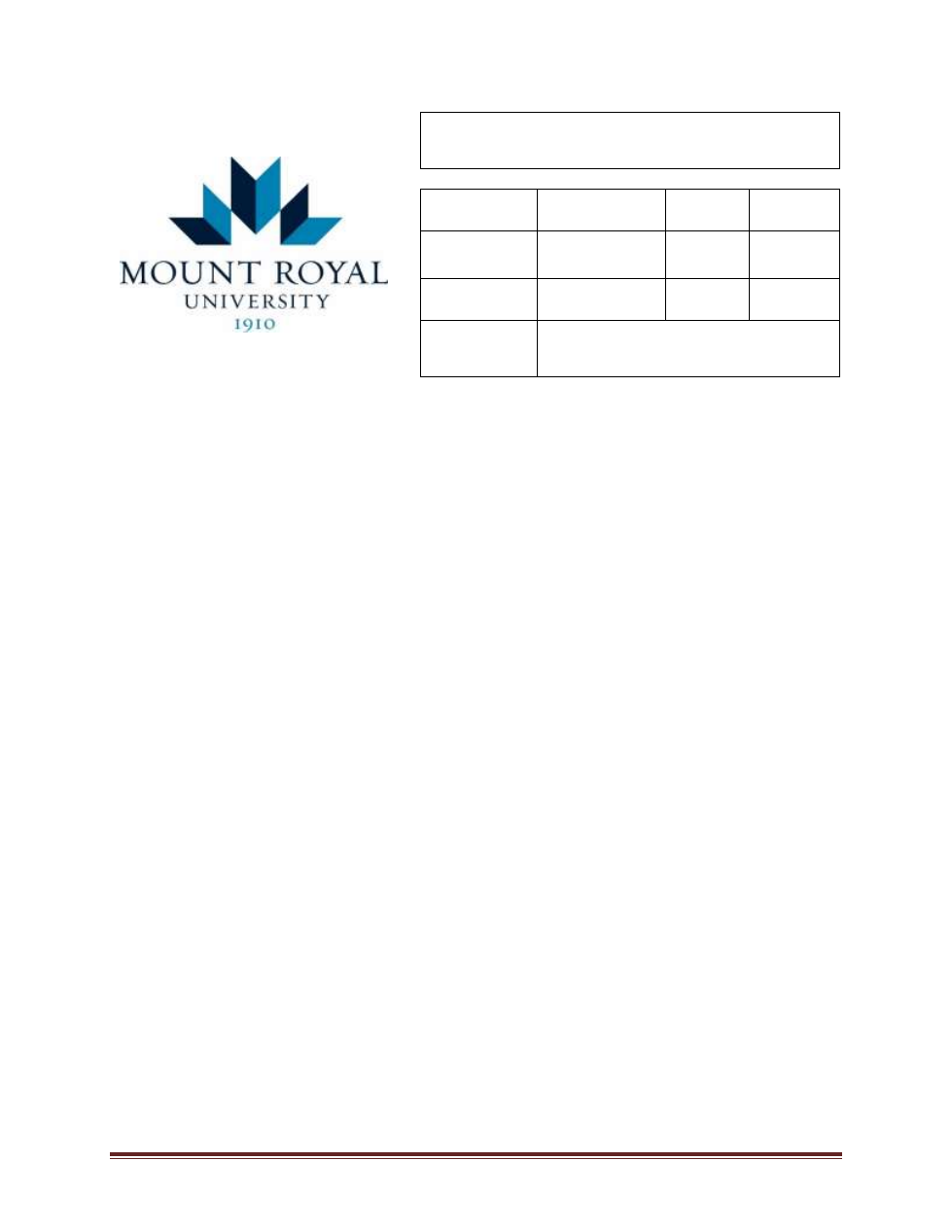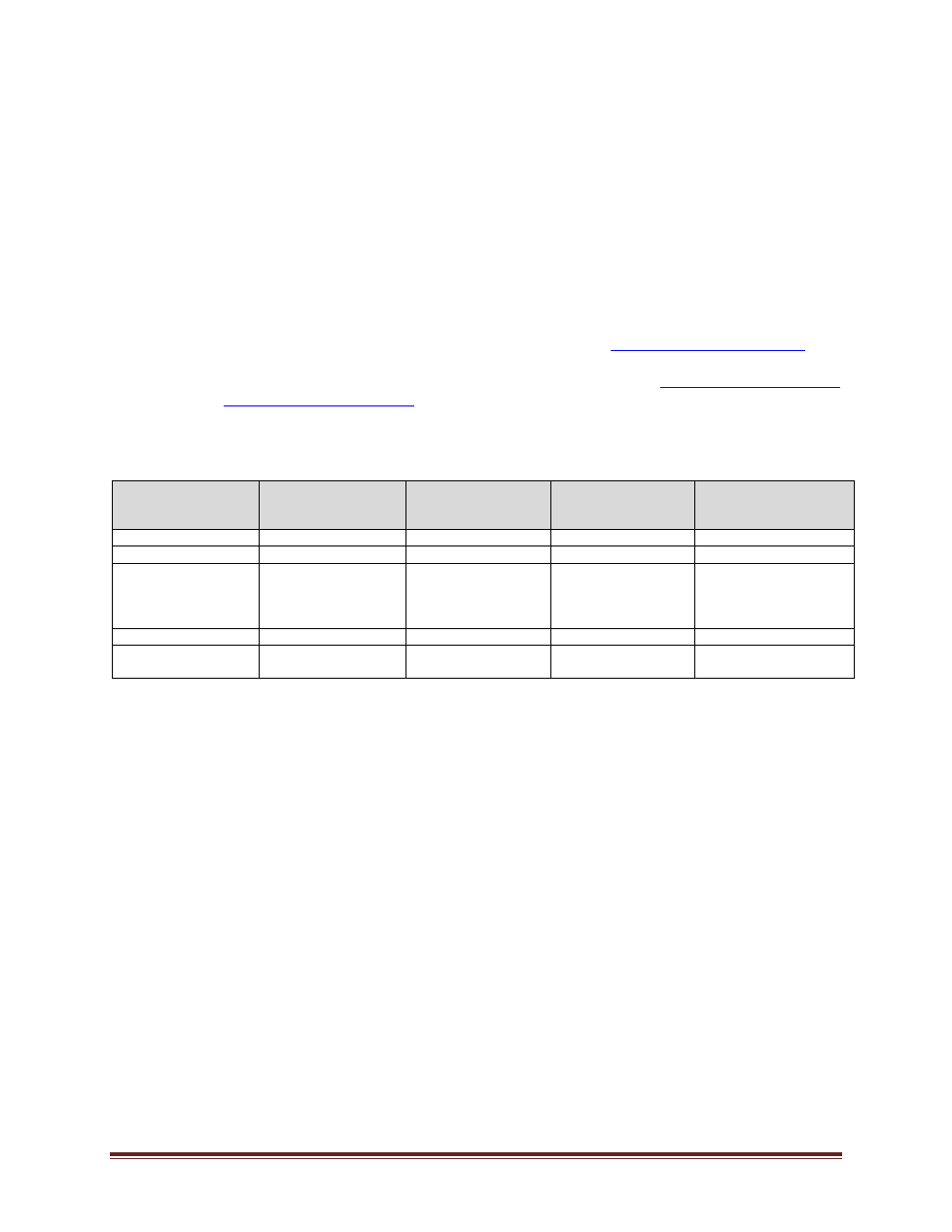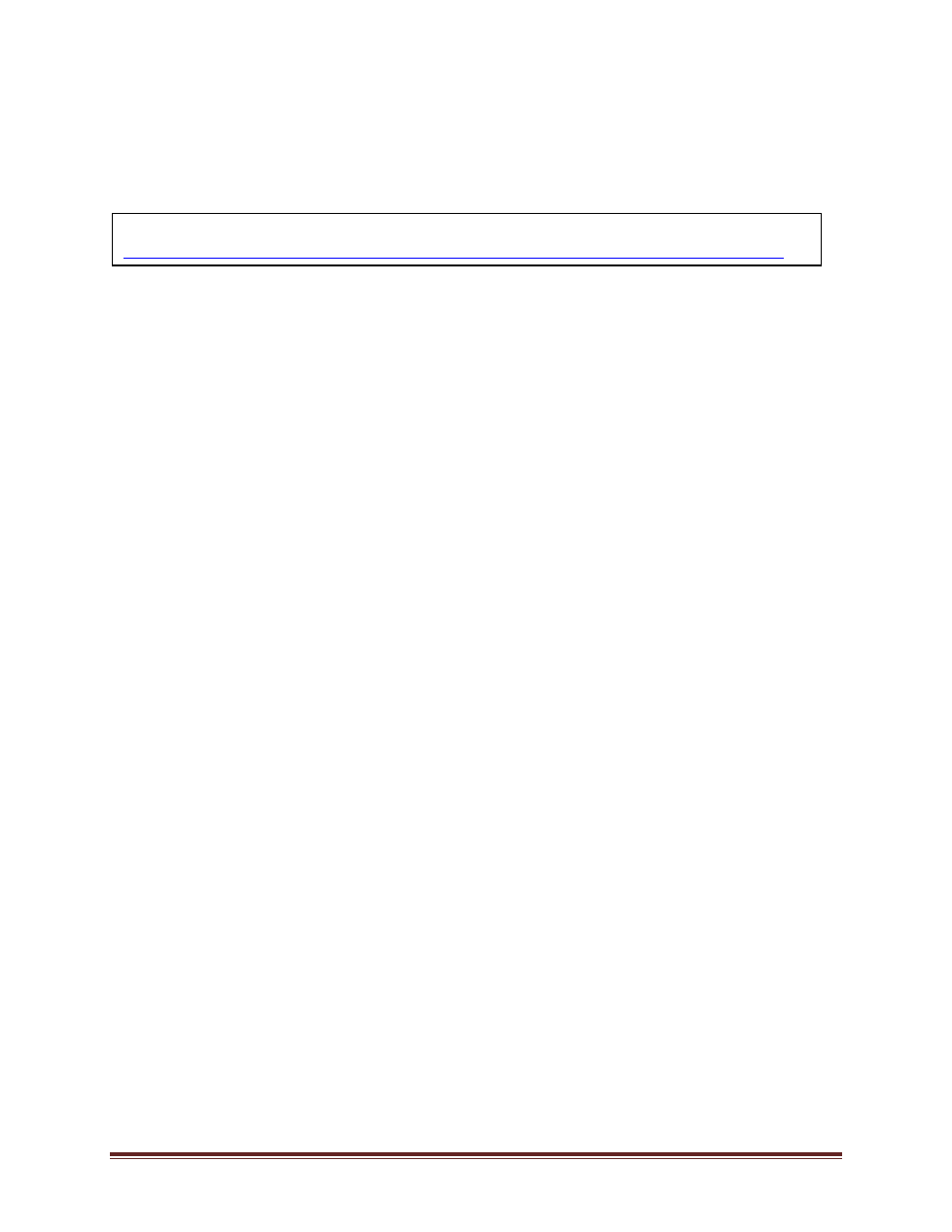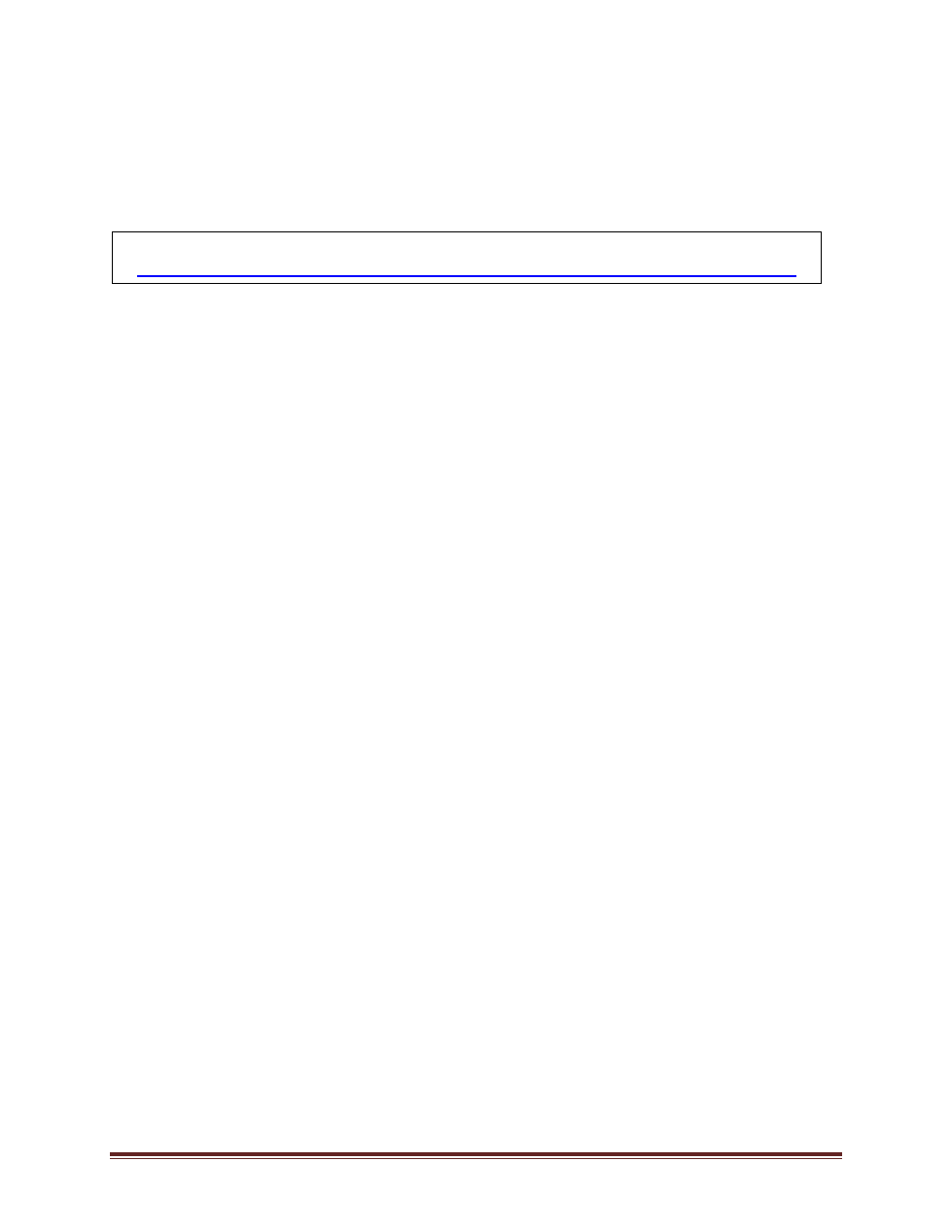
Code of Conduct Policy – April 15, 2019
Page 1 of 29
CODE OF CONDUCT - EMPLOYEES (“CODE”)
Policy Type:
Management
Initially
Approved:
October 26,
2015
Policy Sponsor:
President
Effective
Date:
July 1, 2019
Primary Contact: AVP, Human
Resources
Review
Scheduled: July 2025
Approver:
Board of Governors
A.
OVERVIEW
Mount Royal University, as a public university, serves the common good of society through
searching for, advancing, and disseminating knowledge and understanding and fostering
independent thinking and expression.
Mount Royal University is committed to offering exceptional educational experiences to students,
as well as to being actively engaged with the broader community. Employees with a varied array
of backgrounds, perspectives, and talents form a vibrant university community.
In fulfilling the University’s commitment to students and the public, Employees advance the
mandate, vision and mission of the University in alignment with core values of excellence in
teaching, integrity and transparency, diversity and inclusiveness, mutual respect, pursuit and
application of knowledge, Academic Freedom and citizenship. Mount Royal University is
committed to governance, administration and the performance of duties grounded in these core
values, and to ensuring that the public mandate, as well as societal responsibilities of the University
are met. Employees are to uphold these commitments in their conduct in matters related to
University affairs.
Nothing in this Code limits the rights, duties, responsibilities and freedoms recognized by law, in
professional and/or disciplinary standards or codes and in collective agreements of Employees.
B.
PURPOSE
The purpose of this Code is to communicate the commitments above and to provide a framework
to guide the conduct of Employees in a way that supports the University’s mandate, vision, mission
and the interests of the public it serves.
Recognizing that this Code cannot contemplate every scenario, this Code lists guiding principles
and examples for conduct and Conflicts of Interest, and the spirit and intent behind this Code should
be considered when addressing and resolving concerns.
The guiding principles are intended to aid in the interpretation of this Code and related policies, and
to serve as a foundation to other University policies related to the conduct of Employees. These
other University policies outline specific standards of conduct for Employees.

Code of Conduct Policy – April 15, 2019
Page 2 of 29
C.
SCOPE
This Code applies to all Employees of the University in the course of carrying out their University
responsibilities.
D.
NOTICE PERIOD
Following approval by the Board of Governors, this Code of Conduct will be published by posting
on the University’s public website. The period from the date the Code is made public, until June
30, 2019 will be the public notice period.
This Code will be implemented on July 1, 2019.
E.
GUIDING PRINCIPLES
1.
The University is committed to maintaining an environment free from violence and
harassment.
2.
The following guiding principles apply to the conduct of Employees in the course of carrying
out their University responsibilities, as appropriate to their role:
2.1 comply with applicable laws, University policies and procedures, contractual
commitments and collective agreements;
2.2 perform duties and make decisions impartially, honestly, fairly and in good faith, with
decisions made, whenever possible, based on evidence and transparent criteria;
2.3 protect confidential and private information, using it only for the course of carrying out
their University responsibilities and in compliance with the Freedom of Information and
Protection of Privacy Act and other legislation or University policy that guides the
collection, access, use, disclosure and protection of the information;
2.4 act with care and diligence;
2.5 protect and foster informed, meaningful, inclusive participation in the shared
governance of the University, so that all who should be participating are given the
opportunity to do so, in a way that allows for the expression of a diversity of views and
opinions and debate;
2.6 protect and foster Academic Freedom, and the pursuit, discovery, integration,
application and dissemination of knowledge and understanding through independent
thinking, expression, discussion, and debate;
2.7 foster institutional autonomy and steward relationships to limit undue influence of
external entities;
2.8 will not act in self-interest or further private interests by virtue of position or through the
carrying out of duties;
2.9 steward University Resources effectively, efficiently and for their specified purpose;
2.10 cultivate an equitable, diverse and inclusive environment, free from discrimination,
harassment and violence; and

Code of Conduct Policy – April 15, 2019
Page 3 of 29
2.11 conduct interactions in a mutually respectful manner, respecting the personal dignity
of all, while not limiting the right of participants to challenge beliefs, views and opinions
and to engage in rational debate.
F.
EMPLOYEE RESPONSIBILITIES
1.
Employees are responsible for:
1.1. being familiar with this Code and action in accordance with it; and
1.2. disclosing Actual or Perceived Conflicts of Interest in accordance with this Code to
their Supervisor.
2.
To maintain compliance with this Code and foster conduct consistent with University core
values, Employees are encouraged to assist other Employees, as appropriate, by providing
information, answering questions, referring to others for advice, and raising awareness on
this Code and its guiding principles.
3.
Management Employees are responsible for the following matters in regards to Employees:
3.1. ensuring Employees reporting to them are aware of and understand this Code;
3.2. responding to Actual or Perceived Conflicts of Interest in accordance with this Code;
3.3. providing information on this Code when requested to do so;
3.4. responding to and, if necessary, ensuring that complaints of misconduct are
investigated through the University’s Human Resources Office and/or processes in
collective agreements (refer to Appendix A – Article 25 and Appendix B – Article 10).
3.5. ensuring that the investigative process provides an opportunity for the party alleged of
breaching the Code to respond to the allegations; and
3.6. cultivating an environment that encourages conduct consistent with University
mandate, mission, vision and core values, as well as the public interest.
G.
CONFLICT OF INTEREST
1.
GUIDING PRINCIPLES
1.1 Employees will make every effort not to engage in activities where there may be an
Actual or Perceived Conflict of Interest unless those conflicts are disclosed in writing,
assessed, and appropriately addressed, in accordance with the procedures in this
Code.
1.2 Conflicts of Interest may be permitted only if they can be managed in a way that is
compliant with legislation and considers, protects and serves the interests, integrity
and reputation of the University, and will withstand the test of reasonable and
independent scrutiny.
1.3 Employees must disclose any personal, business, commercial or financial interest
which the Employee and/or immediate Family may have, that could be considered an
Actual or Perceived Conflict of Interest with the Employee’s role at the University.

Code of Conduct Policy – April 15, 2019
Page 4 of 29
1.4 Non-compliance with this Code may constitute misconduct and will be addressed
under applicable collective agreements (see Appendix A – Article 25 and Appendix B
– Article 10) or University policies. The University reserves the right to recover any
profit or financial benefit achieved by an Employee as a result of non-compliance.
2.
CLOSE PERSONAL CONTACT
2.1 Romantic, sexual and financial relationships may develop between members of the
University community. Members of the University community should bear in mind that:
a. Mutual consent may be in question should a complaint of harassment and/or
discrimination arise either during or after a relationship involving partners where
there is an inherent power imbalance that exists with one partner (for example, an
instructor and student or a Supervisor and Employee).
b. Where there exists an inherent power imbalance simultaneous with a consensual
romantic, intimate, or personal relationship, responsibility for supervision and/or
evaluation will be removed and there should be no ability to influence the
employment or academic status of the other individual with whom there is a
relationship.
3.
INTEREST IN A BUSINESS, CONTRACT OR TRANSACTION
3.1 No Employee will:
a. be a party, either personally or through a business firm, partnership or
proprietorship, to a subsisting contract with the University other than a contract of
employment under which money of the University is payable or may become
payable unless prior approval has been obtained from the Division Head;
b. have a shareholding interest in any private corporation (other than a corporation
whose shares are publicly traded) which has a subsisting contract with the
University under which money of the University is payable or may become payable
unless prior approval has been obtained from the Division Head;
c. market for personal gain the results of the University’s sponsored activities except
where a written agreement has been reached with the University through the
appropriate Senior Administrator and approved by the Division Head;
i.
University sponsored activities do not include the commercialization of
intellectual property owned by a faculty member pursuant to the terms and
conditions of the collective agreement between the Mount Royal Faculty
Association and the Board of Governors of Mount Royal University (see
Appendix A – Article 19).
d. take undue advantage of their position with the University to derive personal gain;
or
e. hold themselves to be an agent of the University when engaged in Outside
Activities.

Code of Conduct Policy – April 15, 2019
Page 5 of 29
4.
ACCEPTANCE OF GIFTS AND HOSPITALITY
4.1 To preserve the image and integrity of both the Employee and the University,
acceptance of cash or cash equivalents is strictly prohibited and acceptance of
business Gifts is discouraged.
4.2 For the purposes of this section 4, “Gifts” means all nature of Gifts including all tangible
Gifts, hospitality, event invitations and Conference Invitations inclusive of travel,
admission, hospitality, accommodation and related incidentals from third parties (i.e.,
an individual or entity other than the University). Section 4 does not apply to Donated
Gifts to the University or Gifts accepted by an individual on behalf of the University.
4.3 Employees must not accept Gifts or other benefits that are connected directly or
indirectly with the performance of their duties as an Employee from any individual or
entity, other than:
a. the normal exchange of Gifts between friends;
b. the normal exchange of hospitality between persons doing business together;
c. tokens exchanged as part of protocol; and
d. nominal Gifts presented to persons who are participating in public functions,
awards, speeches, presentations, or seminars.
4.4 From time to time, particularly in the context of international education, Gifts are given
by international students/delegates/hosts. It would be inappropriate to refuse such
Gifts. It should be assumed, however, that such Gifts are given to the University and
not to the individual.
4.5 Moderate hospitality is an accepted courtesy of a business relationship. The
recipients, however, should not allow themselves to reach a position whereby they
might be deemed by others to have been influenced in making a business decision as
a consequence of accepting such hospitality.
4.6 The value of a single tangible Gift permitted cannot exceed $250. The cumulative
maximum cash value limit for tangible gifts permitted from a single source in a calendar
year is $500.
4.7 Employees can accept a single event invitation if the value is $500 or less. The
cumulative maximum cash value limit for event invitation permitted from a single source
in a calendar year is $500.
4.8 Senior Administrators can accept a single event invitation from a donor or friend of the
University if the value is $1,000 or less. The cumulative maximum cash value limit for
event invitations permitted from a single source in a calendar year is $2,000.
4.9 Section 4.7 and 4.8 above do not apply to attendance at social events if attendance at
the social event is sponsored by a charitable foundation, the Governor General of
Canada, a provincial Lieutenant Governor, any Canadian federal, provincial, municipal
or regional government or any member of any such government, a consul or
ambassador of a foreign country or a not-for-profit organization, provided the not-for-
profit organization is not constituted to serve management, union or professional
interests and does not have for-profit enterprises or representatives of for-profit
enterprises as a majority of its members.
4.10 If an Employee accepts an invitation to speak, or participate on a panel, at a
conference, seminar, workshop or similar event (a “Conference Invitation”) and their
speech or participation relates to their University responsibilities or their major

Code of Conduct Policy – April 15, 2019
Page 6 of 29
academic interests, the total value of the transportation costs, registration fees,
accommodation, meals, and related incidentals which may be gifted to them in
connection with the Conference Invitation cannot exceed $8,000. The cumulative
maximum cash value limit for such items permitted from a single source in a calendar
year is $16,000. Prior approval of travel to such events by the Supervisor is required.
4.11 An Employee may seek advice from their Senior Administrator regarding the
Employee’s obligations under this section 4 with respect to a specific Gift, event or
Conference Invitation and may ask their Senior Administrator to increase the dollar
limits for the specific Gift, event or Conference Invitation. The Senior Administrator
must act reasonably and in the best interests of the University in providing such advice
and/or increasing such dollar limits and must consider whether there is a Real or
Perceived Conflict of Interest. The Senior Administrator must respond in writing. The
Employee will be deemed to have complied with this section with respect to the specific
Gift, event or Conference Invitation if they comply with their Senior Administrator’s
written advice and/or new dollar limits.
4.12 Notwithstanding the above, an Employee may not accept a Gift, an event invitation or
any Gift of transportation costs, registration fees, accommodation, meals or related
incidentals in connection with a Conference Invitation if the acceptance of any of the
foregoing gives rise to an Actual or Perceived Conflict of Interest.
4.13 The President may grant exceptions to the maximum values noted above in cases
where hospitality that exceeds these maximums is extended by donors, potential
donors, international partners, or other partners of the University. For hospitality
received by the President, the Board Chair may grant an exception.
5. CONCURRENT EMPLOYMENT, SELF-EMPLOYMENT, APPOINTMENTS AND
BUSINESSES
5.1 Employees may participate in outside appointments, businesses, undertakings or
concurrent employment, including self-employment, provided that such activity does
not cause an Actual or Perceived Conflict of Interest, and:
a. does not interfere with the performance of the Employee’s duties or availability for
work;
b. does not involve the use of University property, equipment, tools, computer,
materials, supplies or personnel; or
c. is not performed in such a way as to appear to represent the University.
5.2 Prior to accepting any employment, appointment, business or undertaking, Employees
are required to notify their Supervisor in writing about the nature of such employment,
appointment, business or undertaking. The Supervisor must then review the
disclosure for any Actual or Perceived Conflicts of Interest.
5.3 If there is no Actual or Perceived Conflict of Interest, the Supervisor must approve the
employment, appointment, business, or undertaking in writing. If there is an Actual or
Perceived Conflict of Interest, the Supervisor must then, in writing, deny the
employment, appointment, business or undertaking or allow the activity and put
procedures in place to manage the Actual or Perceived Conflict of Interest.
5.4 The requirement for prior reporting and approval of outside appointment only applies
to outside appointments for which the Employee receives or is entitled to receive
remuneration.

Code of Conduct Policy – April 15, 2019
Page 7 of 29
5.5 Concurrent employment includes the receipt of income through a research grant. If
the research grant is administered through the University, the research work is deemed
to be pre-approved; if not, it must be reported and approved by the Supervisor.
Exceptions
5.6 Any concurrent employment and any paid appointment of a student who is an
Employee of the University does not need to be reported and will be deemed to have
been pre-approved if the concurrent employment or paid appointment is in the retail,
hospitality or service industries.
5.7 Any concurrent employment and any paid appointment of an academic staff member
who does not hold a full-time position at the University does not need to be reported
and will be deemed to have been pre-approved if:
a. their position at the University is unpaid;
b. their concurrent employment/appointment is with another post-secondary
institution;
c. they teach no more than two three-credit equivalent courses a semester at the
University; or
d. their concurrent employment/appointment requires them to be a member of a
specified professional association which has a code of conduct and can discipline
members for breach of their code. The “specified professional associations” must
be included on the list in Appendix C (approved by the President or delegate).
5.8 If the University is aware at the time an academic staff member is hired/appointed to a
full-time or contract position at the University, that the academic staff member is being
concurrently or jointly hired/appointed to a position at another organization or holds a
position at another organization, their position at the other organization will be deemed
to be reported and pre-approved.
5.9 The concurrent employment or paid appointment of an Employee who is not an
academic staff member and who is not a student, does not need to be reported and
will be deemed to be pre-approved if the concurrent employment/paid appointment
requires them to work no more than 20 hours per week and those hours are not
scheduled during the Employee’s normal working hours at the University.
5.10 Notwithstanding the above, the requirement for prior reporting and approval of
concurrent employment and appointments applies if the concurrent employment or
appointment gives rise to an Actual or Perceived Conflict of Interest.
5.11 Notwithstanding the above, if there is a conflict between the provisions above and any
collective agreement, the collective agreement prevails. The University will notify the
Ethics Commissioner of any such Conflict of Interest promptly after the University
becomes aware of such Conflict of Interest.
5.12 Employees shall not allow the performance of their regular duties to be influenced by
offers of future employment or the anticipation of offers of employment.

Code of Conduct Policy – April 15, 2019
Page 8 of 29
6.
IMPARTIALITY
6.1 Employees are required in all regards to conduct their regular duties and
responsibilities with impartiality and shall not knowingly influence University business,
administrative, academic, research, or other decisions in ways that give improper
advantage to the Employee or the Employee’s business or any individual with whom
the Employee has a familial, personal or business relationship.
6.2 No Employee shall knowingly participate in any decision-making process that directly
and preferentially benefits the Employee or any individual with whom the Employee
has a familial, financial, personal or business relationship. Employees should not
provide, in the performance of their regular duties, preferential treatment to Family or
friends or to a business, proprietorship, corporation or organization in which they or
their relatives have an interest, financial or otherwise. Whenever Employees perceive
a potential Conflict of Interest developing, it must be disclosed.
7.
USE OF UNIVERSITY RESOURCES
7.1 Employees may only use University Resources for activities on behalf of the University.
7.2 Notwithstanding 7.1, University Resources may be used for personal purposes in
limited circumstances when permitted by an existing policy, or where incidental
personal use is reasonable.
7.3 Use of University Resources for the private business of an Employee is not permitted
unless authorized by the University President or their designate. For purposes of this
Code, University Resources include University personnel, physical facilities,
equipment, computers, materials and supplies.
8.
EXAMPLES OF CONFLICTS OF INTEREST
8.1 Examples of Conflicts of Interest include, but are not limited to the following:
a. authorizing the University to purchase services, supplies or equipment from a
source in which the Employee or Employee’s Family has an interest;
b. when participation in Outside Activities prevents an instructor from being
reasonably available to students for individual consultation, advice and assistance;
c. an Employee offering a workshop or other activity as a private venture but
identifying themselves as a representative of the University;
d. conducting an academic evaluation or the conferring or denying of an academic or
administrative benefit for a student who is the Employee’s Family or Employee’s
Close Personal Contact;
e. supervising the Employee’s Family or Employee’s Close Personal Contact;
f. entering into a research contract with a company in which the Employee,
Employee’s Family or Employee’s Close Personal Contact has financial interest;
g. entering into a licensing agreement for the development of intellectual property,
generated as a result of University research, with a company in which the
Employee has a personal interest; or

Code of Conduct Policy – April 15, 2019
Page 9 of 29
h. using personal or professional information of the University that may be considered
privileged or confidential for personal or professional gain.
H.
CONFLICT OF INTEREST DISCLOSURE AND REVIEW PROCESS
1.
It is the responsibility of every Employee to disclose any situation that may constitute a
Conflict of Interest.
2.
All Employees will provide written notice to their immediate Supervisor of an Actual or
Perceived Conflict of Interest prior to commencing any activity related to the disclosure.
3.
Conflicts of Interest related to research involving human participants must also be declared
to and managed by the Human Research Ethics Board (HREB), in accordance with the Ethics
of Research Involving Human Participants Policy.
4.
The immediate Supervisor will receive, review, and provide written assessment to the
Employee who made the disclosure.
5.
In conducting the assessment, the immediate Supervisor will escalate the disclosure to the
next level of supervision should there be an Actual or Perceived Conflict of Interest involving
the immediate Supervisor.
6.
The individual conducting the assessment will work with the Employee declaring a potential
Conflict of Interest to ensure complete and thorough understanding of the situation.
7.
The individual conducting the assessment will ensure that all aspects of the Conflict of
Interest disclosure submission, review and management consider and comply with the
Freedom of Information and Protection of Privacy Act, as amended, and other legislation
relevant to the activity.
8.
As a result of the disclosure and assessment, the individual conducting the assessment may
find:
8.1. there is no Actual or Perceived Conflict of Interest and the Employee may proceed with
the activity.
8.2. there is potential for a Conflict of Interest, but the activity serves the interests of the
University and the activity can be managed in a way that is compliant with legislation,
protects the integrity and reputation of the University, and would withstand the test of
reasonable and independent scrutiny. In this case, a suitable method of monitoring
and managing the allowed conflict will be determined and implemented before the
Employee proceeds with the activity.
8.3. there is the potential for a Conflict of Interest and it is determined that the activity does
not serve the interests of the University or the potential conflict cannot be managed in
a way that would protect the integrity and reputation of the University or withstand the
test of reasonable and independent scrutiny. In this case, the activity will not be
allowed and the Employee is not to proceed with the activity.
9.
Where an Employee does not agree with the assessment that has been provided, they may
appeal the decision in writing within 10 days to their next level of supervision.

Code of Conduct Policy – April 15, 2019
Page 10 of 29
I.
BREACHES OF CODE OF CONDUCT
1.
If an Employee or Student has concerns about the conduct of an Employee, they can seek
additional information from Human Resources.
2.
Employees are encouraged to report in writing a potential breach of this Code to the
Associate Vice-President, Human Resources (“AVP HR”) (or the Vice-President, Finance
and Administration in the case of a complaint about the AVP HR) or verbally through the
University’s reporting hotline (see Related Information). When reporting a potential breach
in good faith and with reasonable grounds, Employees are protected from retaliation for such
reporting.
3.
Once a potential breach has been reported, the AVP HR (or the Vice-President, Finance and
Administration in the case of a complaint about the AVP HR) will respond to and manage the
potential breach promptly.
4.
The AVP HR (or the Vice-President, Finance and Administration in the case of a complaint
about the AVP HR) will review the circumstances and details of the potential breach and
investigate. The AVP HR (or the Vice-President, Finance and Administration in the case of
a complaint about the AVP HR) may investigate the breach themselves or appoint a person
or persons to investigate.
5.
The AVP HR (or the Vice-President, Finance and Administration in the case of a complaint
about the AVP HR) shall notify the named Employee of the allegation. Such notification shall
occur promptly unless such notification could jeopardize the investigation. The Employee
has the right to complete information and the right to respond fully to the potential breach.
The identity of the party making the report will not be disclosed unless required by law or in
a legal proceeding.
6.
The AVP HR (or the Vice-President, Finance and Administration in the case of a complaint
about the AVP HR) shall make a decision and complete a written report, including reasons,
in a timely manner which report shall be provided to the Employee.
7.
Employees who do not comply with the behavioural standards identified in this Code and
other policies will be subject to appropriate disciplinary action by the University. The decision
may range from finding no potential breach to one that reveals suspected criminal conduct.
8.
Resolution and Appeal Process
If the Employee does not agree with the decision of the AVP HR, the Employee can request
in writing that the Vice-President, Finance and Administration review the decision made by
the AVP HR (or the President in the case of the Vice-President Finance and Administration
or the Board of Governors in the case of the President).
J.
ADDITIONAL OBLIGATIONS OF THE PRESIDENT AS A SENIOR OFFICIAL AND
DESIGNATED SENIOR OFFICIAL
1.
Restrictions on Furthering Private Interests
The President may not take part in a decision knowing that the decision might further their
private interests, or the private interests of a Family member or a Person Directly Associated
with the President. “Private interests” do not include interests that are trivial, of general
application, affect an individual as member of a broad class, or concern an individual’s
remuneration or benefits.

Code of Conduct Policy – April 15, 2019
Page 11 of 29
2.
Restrictions on Using Influence
The President may not use their office or powers to influence or try to influence a decision of
the Crown or a public agency to further their private interest, or the private interests of a
Family member or a Person Directly Associated with the President or to improperly further
any other person’s private interest.
3.
Restrictions on Using Insider Information
The President may not use or communicate information, not available to the general public,
that they gained in the course of carrying out their office or powers in order to further or to try
to further their private interest or any other person’s private interest.
4.
Restrictions on Concurrent Employment
The President may not participate in any outside appointment, business, undertaking, or
employment, including self-employment, unless they receive approval from the Board of
Governors and apply for and receive approval of the Ethics Commissioner.
The Ethics Commissioner may approve such participation if the Ethics Commissioner
determines that the President’s involvement will not constitute an Actual or Perceived Conflict
of Interest.
5.
Restrictions on Holding Publicly-Traded Securities
The President may not hold publicly-traded securities without the approval of the Ethics
Commissioner, who may direct that such securities be held in a blind trust or other investment
arrangement.
6.
Disclosure Obligations
6.1 Within 60 days of becoming President, the President shall file with the Ethics
Commissioner a disclosure statement in the form and manner determined by the Ethics
Commissioner, and in each subsequent year at the time specified by the Ethics
Commissioner.
6.2 The President shall, within 30 days after the occurrence of any material changes to the
information contained in a current disclosure statement, file with the Ethics
Commissioner an amending disclosure statement in the form provided by the Ethics
Commissioner setting out the changes.
6.3 Within 60 days of becoming President, the President shall file with the Ethics
Commissioner a return relating to Persons Directly Associated with the President, in a
form and manner determined by the Ethics Commissioner. The President shall file an
updated return within 30 days after the occurrence of any material change in the
information contained in a current return, and within 30 days after the delay they
ceases to be the President. On receipt of a return under this section, the Ethics
Commissioner shall provide a copy of it to the Chair.
7.
Post-Employment Restrictions
The President may not conduct certain activities or accept employment with certain entities
for a period of 12 months after the last day they hold their position as President.
These post-employment restrictions include restrictions on lobbying public office-holders,
making representations in connection with matters that the former President directly worked

Code of Conduct Policy – April 15, 2019
Page 12 of 29
on, soliciting or benefiting from a contract with the University, and accepting employment with
an organization or an appointment to the board of an organization with which the former
President had direct and significant official dealings as the President.
Former Presidents may apply to the Ethics Commissioner for a waiver or reduction of the 12-
month restriction if the Ethics Commissioner determines that no Actual or Perceived Conflict
of Interest exists.
K.
DEFINITIONS
(1)
Academic Freedom: has the same meaning as outlined in the Collective Agreement
between the Mount Royal Faculty Association and the Board of
Governors of Mount Royal University (see Appendix A – Article
23).
Academic Staff
Member:
has the same meaning as the defined term “Employee” in the
Mount Royal Faculty Association (MRFA) Collective
Agreement to be all Association members including: full-time
Employees, Contract Employees teaching credit courses;
chairs, counsellors; educational developers; librarians;
laboratory instructors; and those persons from time to time
designated “academic staff members” by the Board.
(2)
Actual Conflict of
Interest:
A situation in which there is a divergence between the private
financial benefit or financial interest or personal benefit of a
person, family member, or an outside party, and that person’s
obligations to the University, such than an impartial observer
might reasonably question whether related actions to be taken
or decisions made by the person would be influenced by
consideration of the person’s own interests.
(3)
Board of Governors:
means Board of Governors of Mount Royal University.
(4)
Board Chair:
means the Chair of the Board of Governors of Mount Royal
University.
(5)
Code
means this Code of Conduct Policy.
(6)
Close Personal
Contact:
means an individual with whom an Employee is directly
associated or has a romantic, intimate or other personal
relationship, whether that relationship currently exists or had
recently existed.
(7)
Conference
Invitation:
means invitation to speak, or participate on a panel, at a
conference, seminar, workshop or similar event.
(8)
Conflict of Interest:
Arises when individuals are placed in a position whereby their
personal interest conflicts with the best interests of the
University. The test of a Conflict of Interest is not just a case of
whether the individual is actually improperly influenced by their
personal interest, obligation or objective but the pivotal issue is
whether circumstances lend themselves to such a possibility.
(9)
Designated Senior
Official:
means the President pursuant to provisions of the Conflicts of
Interest Act of Alberta.

Code of Conduct Policy – April 15, 2019
Page 13 of 29
(10) Division:
means a division of the University that is led by a Vice-
President or the President.
(11) Division Head:
means the President or appropriate Vice-President leading the
Division.
(12) Donated Gifts to the
University
As defined by the Canada Revenue Agency (CRA), a Donated
Gift to the University is the voluntary transfer of some form of
property, either in cash or in-kind, that is not linked to the
delivery of a specific good or service, for which the donor
expects and receives nothing of value in return.
(13) Employees:
means individuals who are engaged to work for the University
under an employment contract, including but not limited to
faculty, staff, exempt, casual and management employees.
(14) Ethics
Commissioner:
means the Officer of the Alberta Legislature appointed to this
role.
(15) Family:
refers to an Employee’s spouse or adult interdependent
partner, parent, guardian, grandparent, grandchild, son,
daughter, foster child, nephew, niece, brother, sister, brother-
in-law or sister-in-law.
(16) Gifts:
means all nature of Gifts including all tangible gifts, hospitality,
event invitations and conference invitations inclusive of travel,
admission, hospitality, accommodation and related incidentals
from third parties (i.e., an individual or entity other than the
University.)
(17) Management
Employees:
includes the President, Vice-Presidents, Associate Vice-
Presidents, Deans, Directors, Managers and all Employees
classified as Management by Human Resources at the
University.
(18) Minor Child:
As defined in the Conflicts of Interest Act (Alberta) includes a
minor to whom an Employee has demonstrated a settled
intention to treat as a child of the Employee’s family;
(19) Outside Activities:
means any activity outside an Employee’s work with the
University that involves the same or similar specialized skill and
knowledge that an Employee uses in their work with the
University and includes, but is not limited to, the ownership and
operation of a business, consulting and advisory services.
(20)
Perceived Conflict:
A Perceived Conflict of Interest exists when there is a
reasonable apprehension, which reasonably well-informed
persons could have, that a Conflict of Interest exists.
(20) Person Directly
Associated With the
President:
A Person is Directly Associated With the President if that
person is: (a) the President’s spouse or adult interdependent
partner; (b) a corporation having share capital and carrying on
business or activities for profit or gain and the President is a
director or senior officer of the corporation; (c) a private
corporation carrying on business or activities for profit or gain

Code of Conduct Policy – April 15, 2019
Page 14 of 29
and the President owns or is the beneficial owner of shares of
the corporation; (d) a partnership (i) of which the President is a
partner, or (ii) of which one of the partners is a corporation
directly associated with the President by reason of (b) or (c), or
(e) a person or group of persons acting with the express or
implied consent of the President.
(21) Policy:
means the Code of Conduct Policy.
(22) Senior
Administrator:
means the Board Chair, President, Vice-Presidents, General
Counsel (called
University Solicitor at MRU),
Associate/Assistant Vice-Presidents, Vice-Provosts, and
Deans.
(23) Senior Officials:
means the Board Chair and the President pursuant to the
provisions of the Conflicts of Interest Act of Alberta.
(24) Student:
means any individual who maintains an affiliation as a learner
in the University’s educational community.
(25) Supervisor:
means an Employee’s manager of their department/unit, or in
the case of an academic staff member their Dean/ Director/
Associate Vice-President.
(26) University:
means Mount Royal University.
(27) University
Resources:
means the tangible and intangible assets of the University.
L.
RELATED DOCUMENTS
•
Appendix A – Excerpts from the Collective Agreement between The Mount Royal Faculty
Association and The Board of Governors of Mount Royal University
•
Appendix B – Excerpts from the Collective Agreement between The Mount Royal Staff
Association and The Board of Governors of Mount Royal University
•
Appendix C – List of Specified Professional Associations
•
Collective Agreement between The Mount Royal Faculty Association and The Board of
Governors of Mount Royal University
•
Collective Agreement between The Mount Royal Staff Association and The Board of Governors
of Mount Royal University
M.
RELATED POLICIES
•
The Code of Conduct is foundational to all University policies.
•
Acceptable Use of Computer and Communications Resources Policy
•
Code of Student Conduct Policy
•
Employees Safe Disclosure of Wrongdoing and Public Interest Disclosure Policy and
Procedures
N.
RELATED LEGISLATION

Code of Conduct Policy – April 15, 2019
Page 15 of 29
•
Alberta Adult Interdependent Relationships Act, SA 2002, c A-4.5
•
Conflicts of Interest Act, RSA 2000, c.C-23
•
Alberta Public Agencies Governance Act, SA 2009, c A-31.5
•
Freedom of Information and Protection of Privacy Act, RSA 2000, c F-25
•
Post-secondary Learning Act, SA 2003,c.P-19.5
•
Public Interest Disclosure (Whistleblower Protection) Act, SA 2012, c P-39.5
O.
RELATED INFORMATION
•
Confidence Line – a secure process for reporting concerns about professional or financial
misconduct, providing an alternative, anonymous mechanism to normal channels to report
professional or financial misconduct (1.800,661.9675 or
www.mru.confidenceline.net
).
•
Government of Alberta Agency Governance Secretariat:
http://www.alberta.ca/ags-
policies-code-of-condut.cfm
P.
REVISION HISTORY
Date
(mm/dd/yyyy)
Description of
Change
Sections
Person who
Entered Revision
(Position Title)
Person who
Authorized Revision
(Position Title)
10/26/2015
New Policy
University Secretary President
04/10/2017
Rewritten
All
University Secretary President
04/15/2019
Comprehensive
Revision
All – to comply with
COI Act; Code and
COI Policy
combined into one
University Secretary Board of Governors
01/15/2020
Editorial
Template
Policy Specialist
University Secretary
04/18/2023
Editorial
Definitions
Policy Advisor
Legal Counsel and
University Secretary

Code of Conduct Policy – April 15, 2019
Page 16 of 29
APPENDIX A
Excerpts from the Collective Agreement between The Mount Royal Faculty Association
and The Board of Governors of Mount Royal University
ARTICLE 19 – INTELLECTUAL PROPERTY
19.1 Principles and Definitions
19.1.1 The University’s role is to create, disseminate and ensure public access to knowledge
and information. The core nature of the faculty profession is to carry out this role.
19.2.1 Copyright shall have the same meaning as the Copyright Act (Canada). R.S.C.1985, c.
C42, as amended, and as interpreted by the applicable courts.
19.1.3. A Work is an original idea or concept fixed in any tangible medium of expression now
known or later developed.
19.1.4 Scholarship shall have the same meaning as in Article 1.26 and the Addendum on
Teaching, Scholarship and Service of this Agreement.
19.1.5 Teaching shall have the same meaning as in Article 1.29 and the Addendum on
Teaching, Scholarship and Service of this Agreement.
19.1.6 This Article does not derogate from any user rights, including fair dealing rights that the
University or any Employee may have with respect to any work.
19.2 Scholarship and Teaching Works
19.2.1 Employees own the copyright and retain the moral rights to the products of their
scholarship, subject to articles 19.5 (Commissioned Works), 19.6 (Third Part
Agreements), and 19.7 (Ownership and Multiple Creators of Teaching Works).
19.2.2 The University shall not interfere with an Employee’s freedom to publish the results of
scholarship, except for limitations imposed by duly constituted university research ethics
boards.
19.2.3 No Employee shall be obliged to engage in the commercial exploitation of his or her
scholarship, nor to provide commercial justification for it.
19.2.4 Employees own the copyright and retain the moral rights to teaching works, subject to
articles 19.4 (University Curriculum and Student Records), 19.5 (Commissioned Works),
19.6 (Third Party Agreements), 19.7 (Ownership and Multiple Creators of Teaching
Works), and 19.8 (Previously Existing Works).
19.2.5 Whereas the University and its Employees have a shared obligation to deliver scheduled
credit academic courses of instruction to students, the Employee shall grant the
University a royalty-free, irrevocable license to use all teaching works, where available,
that are required to deliver the course if the Employee is unable to complete his or her
duties, so that students are able to complete the credit academic course in the original
time frame.
Full Collective Agreement is posted on the Human Resources website:
https://www.mtroyal.ca/cs/groups/public/documents/pdf/ssdata_hr_mrfa2016to2018.pdf

Code of Conduct Policy – April 15, 2019
Page 17 of 29
19.1.5.1 Such a license is limited by the following conditions: the teaching work shall
be used in its original intended delivery mode; the license shall be limited to
the scheduled offering at risk because the Employee is unable to complete
his or her duties.
19.2.5.2 Employees are not required to provide the University with all teaching works
at the beginning of a course in case they are needed under 19.2.5.
19.3 University Administrative Records
19.3.1 Notwithstanding Articles 19.2.1 and 19.2.4, upon creation the University owns copyright
in all works produced while performing management or administrative duties or
functions, or constituting the records of the administrative activities of a committee or
Academic Unit.
19.4 University Curriculum and Student Records
19.4.1 Notwithstanding Articles 19.2.1 and 19.2.4, upon creation the University owns the
copyright in the following teaching works created by Employees: course titles; calendar
descriptions; course grades; basis course outlines; and other student records related to
instruction and student evaluation, placement and assessment. For the purposes of this
Article, a basic course outline shall include, at the minimum, information about the
grading scheme, the weighting of assignments, and any textbooks or course packs
required.
19.5 Commissioned Works
19.5.1 Notwithstanding Articles 19.2.1 and 19.2.4, where an Employee is specifically
commissioned by the University to create a work, that commission shall be recorded in a
written agreement, and that agreement shall, at the minimum, define copyright
ownership and license terms. The University shall provide the Association with a copy
of any such agreement at least one week prior to its signing.
19.5.2 No Employee shall be obliged to enter into any commission agreement that alters or
abridges, or has the effect of altering or abridging the intellectual property rights of the
Employee without the Employee’s written consent.
19.6 Third-Party Agreements
19.6.1 Notwithstanding Articles 19.2.1 and 19.2.4, if an Employee creates a work under any
agreement between the University and a Third Party, copyright ownership and licensing
shall be governed by the terms of that agreement. Where the agreement with the Third
Party requires the assignment or license of copyright to the Third Party, then the
University shall own copyright in any works created by Employees under such
agreement in order to fulfill the obligations of that agreement, subject to 19.6.2.
19.6.2 The University shall not enter into any agreement with a Third Party which alters or
abridges, or has the effect of altering or abridging, the intellectual property rights of an
Employee without the Employee’s written consent.
19.6.3 No Employee shall be obliged to create a work under an agreement between the
University and a Third Party that alters or abridges, or has the effect of altering or
abridging, the intellectual property rights of the Employee without the Employee’s written
consent.

Code of Conduct Policy – April 15, 2019
Page 18 of 29
19.7 Ownership and Multiple Creators of Teaching Works
19.7.1 Multiple creators shall address respective copyright ownership and license rights,
including moral rights, in a written agreement in advance of a teaching work’s creation.
19.7.2 Where collaborative and iterative development of works is the normal or agreed upon
practice in an Academic Unit, all Employees in that unit will be advised of this practice
before an Employee engages in the creation of a teaching work. Notwithstanding
Articles 19.2.1 and 19.2.4, in such a case all creators shall agree that copyright,
including moral rights, in the teaching work created shall be retained by the University,
and the Academic Unit shall have the authority to amend, adapt or modify the work as
needed.
19.8 Previously Existing Teaching Works
19.8.1 Notwithstanding Articles 19.2.1 and 19.2.4, when a work created by an Employee
existed prior to this Article 19 coming into force, and it is not reasonably possible to
determine the creators, copyright in the work shall be owned by the University.
19.9 Clearances
19.9.1 Unless expressly accepted by agreement in writing, the University has no responsibility
for obtaining clearances (sufficient permissions for the applicable use) for Third-Party
works or parts of works. The Employee warrants that the work is original and that the
license granted to the University will not involve it in any liability for breach of copyright,
breach of trust or defamation.
19.9.2 In the event that the University agrees in writing to obtain any such clearances the
Employee shall provide the University with an accurate list of clearances and the
University shall be responsible for securing the clearances.
19.10 Dispute Resolution Process
19.10.1 Disputes between the University and an Employee are subject to the regular grievance
process.
19.11 Successor and Other Rights
19.11.1 When an Employee leaves the University, ownership, license rights and obligations in
any works created by the Employee while employed by the University shall continue and
survive as defined here, including any Third Party agreement as defined in this article in
19.6.1.
19.11.2 All intellectual property rights and obligations devolve to their owners’ heirs and
successors.
19.12 Patents and Related Intellectual Property
19.12.1 The following clauses apply to inventions, integrated circuits, plant cultivars, trademarks
and industrial designs. “Patents and Related Intellectual Property” means any result of
intellectual or artistic activity, created by an Employee, that can be owned by a person
excluding know how, data and works to which copyright alone attached.
19.12.2 Reference to Employee in this article shall include multiple creators.

Code of Conduct Policy – April 15, 2019
Page 19 of 29
19.12.3 The discovery of patentable inventions is not a basic purpose of university research, nor
is it a condition of support of such research. The Employee shall have no obligation
to seek patent protection or to modify research to enhance patentability. However,
industrially useful or commercially viable intellectual property is sometimes the result of
university scholarly activity. When this is the case, the University encourages
Employees to consider, and where appropriate, undertake commercialization of the
results of their scholarly activities.
19.12.4 The University has the right to be consulted and to approve or disapprove any use
of the University's name, facilities, or resources in any commercial arrangement. In
some circumstances, the University may also require that it be a Party to the
arrangements as a condition of any use or approval.
19.12.5 The Employee has the right to publish his or hr inventions though in certain circumstances
there may be a delay in publication.
19.12.5.1 There may be a delay in publication to protect the patentability of intellectual
property.
19.12.5.2 Where the intellectual property is the result of a Third Party contract, there may
be a delay in publication specified in the contract. Such a delay shall not
normally exceed 24 months. The date of termination of the period of
confidentiality shall be identified in the written contract.
19.12.6 Employees own the intellectual property rights in any invention, improvement, design or
development that they create in the course of their employment even if it was produced
with the University’s facilities and resources, except in those cases where there is a
written contract to the contrary.
19.12.7 Multiple creators shall address ownership and protection of intellectual property in a
written agreement in advance of any attempts to commercialize such intellectual property.
The written agreement shall also address revenue sharing among multiple creators.
19.12.8 Subject to a mutually acceptable written agreement between the University and the
Employee, the University may acquire ownership as a condition of any production,
publication, or distribution arrangement and in consideration of its financial and resource
investment.
19.12.9 The Employee shall disclose to the University any intellectual property that is covered
by the revenue sharing guidelines outlined in 19.12.12 and 19.12.13 when the
Employee wants to begin the protection of intellectual property through the patent
process. The disclosure is made to the Office of Research Services and copied to the
Association. Such disclosure shall be kept confidential by all Parties.
19.12.9.1 Upon disclosure, the University and the Employee shall discuss different
commercialization options.
19.12.9.2 The Employee shall decide whether to include the University or its agent in
the patent process. Revenue sharing shall apply whether or not the Employee
involves the University if the intellectual property is covered by the revenue
sharing guidelines as outlined in 19.12.12 and 19.12.13.
19.12.9.3 If the Employee requests the University or its agent’s involvement in the patent
process, the University shall have the option to participate or not. The
University shall notify the Employee in writing of its decision to participate
within three months of disclosure.

Code of Conduct Policy – April 15, 2019
Page 20 of 29
19.12.9.3.1 Where the University agrees to participate, the Employee
agrees to provide full cooperation and assistance in the
preparation of the patent application.
19.12.9.3.2 Where the University decides not to participate, the Employee
may pursue patent protection on his or her own.
19.12.10 If pursuant to 19.12.9, the Employee does not disclose a potentially patentable
discovery subject to revenue sharing guidelines specified in 19.12.12 and 19.12.13,
the University shall maintain its rights under this Article.
19.12.11 The Employee is not required to disclose intellectual property that is not covered
by the revenue sharing guidelines.
19.12.12 Normally, the Employee and the University will share in the net revenues resulting
from the commercialization of patentable intellectual property when:
•
the costs of the activities giving rise to the property were specifically funded by
third-Party contracts with the University;
•
the costs of the activities giving rise to the property were specifically funded by
grants from the University's endowments, special purpose funds, or specific budget
allocations;
•
the property was created using the specialized research facilities and services
of the University, including the University's research laboratories, capital
equipment, and technical facilities and services. Specialized facilities and services
do not include the use of offices and office equipment, limited office services,
personal computers, the library, or other services commonly available to
Employees;
•
the University or the University’s agent actively participates in protection or
commercialization of Intellectual Property, including the development, financing,
manufacture, license, and sale of the property.
19.12.13 Normally the University will not share in the net revenues resulting from the
commercialization of patentable intellectual property when:
•
the Intellectual Property was created without using the University's specialized
facilities and services;
•
the Intellectual Property was created in the course of outside professional activities
or non- University activities;
•
the Intellectual Property is placed in the public domain or assigned for publication
without consideration in the course of the normal dissemination of knowledge in the
field;
•
the University has made a prior agreement to forgo revenue sharing.
19.12.14 Revenue sharing may apply regardless of whether the Intellectual Property is
Employee or University owned.
19.12.15 The University's share of revenue from intellectual property covered by revenue sharing
guidelines shall depend upon the level of its involvement in the commercialization
process. Three broad categories are recognized: commercialization by the Employee
which involves the greatest investment of the Employee's time and money and includes
commercialization through Employee-established companies; commercialization
involving the University; and commercialization through a Third Party. For the purposes
of this article, net revenue means any money received as a result of the development
or commercial exploitation of the patent, less any expenses incurred to register, develop,
exploit or administer the patent.

Code of Conduct Policy – April 15, 2019
Page 21 of 29
19.12.15.1 Commercialization by the Employee
Normally, the University shall have a share of 15 percent of net revenues
over $75,000.
19.12.15.2 Commercialization by the University
Normally, the University and the Employee shall each have a 50 percent
share of net revenues.
19.12.15.3 Commercialization by a Third Party
The University shall have a negotiated share subject to the terms of the
agreement with the Third Party. Normally, the Employee shall not receive
less than a 50 percent share of net revenues.
19.12.16 The University’s share of revenue shall normally be distributed as follows:
•
1/3 of net revenue shall go to a university-level fund to support research and
scholarly activity.
•
1/3 of net revenue shall go to support research and scholarly activity in the
Employee’s faculty.
•
1/3 of net revenue shall go to support university activity.
19.12.16.1 The amount and distribution of such funds shall be reported to the
Association annually.
19.12.17 The University will have a royalty-free, non-exclusive right to use and re-use within the
University patentable intellectual property which is subject to the revenue sharing
guidelines outlined in 19.12.12 and 19.12.13.
ARTICLE 23 – ACADEMIC FREEDOM
23.1 The common good of society depends upon the search for knowledge and its free exposition.
Academic freedom in educational institutions is essential to both these purposes in the
teaching function of the institution as well as in its scholarship and research.
23.2 Academic freedom as a right belongs to the individual faculty member, not the Faculty
Association or the University. Academic freedom does not confer legal immunity nor does it
diminish the obligation to meet employment duties and responsibilities.
23.3 Academic staff shall not be hindered or impeded in any way by the institution or the faculty
association from exercising their legal rights as citizens, nor shall they suffer any penalties
because of the exercise of such legal rights. Academic members of the community are
entitled, regardless of prescribed doctrine, to freedom in designing and carrying out research
and in publishing the results thereof, freedom of teaching and of discussion, freedom to
criticize the University and the faculty association, and freedom from institutional censorship.
23.4 Academic freedom does not require neutrality on the part of the individual. Rather, academic
freedom makes commitment possible. Academic freedom carries with it the duty to use that
freedom in a manner consistent with the scholarly obligation to base research and teaching on
an honest search for knowledge.
23.5 In exercising the freedom to comment and criticize, academic staff members have a
corresponding obligation to use academic freedom in a responsible manner. This implies a
recognition of the rights of other members of the academic community and a tolerance of
differing points of view.

Code of Conduct Policy – April 15, 2019
Page 22 of 29
ARTICLE 25 – DISCIPLINE
25.1
Right to Have Association Representative Present
25.1.1 An Employee shall have the right to have a member of the Association Executive
present at any meeting that the Employee believes might be the basis of discipline. If a
Dean intends to meet with an Employee for disciplinary purposes, the Dean shall:
25.1.1.1 notify the Employee and the President of the Association, in writing, of the
purpose of the meeting;
25.1.1.2 identify the Employee’s right to have representation by the Association at the
meeting and
25.1.1.3 schedule the meeting, allowing reasonable time for the Employee to arrange
Association representation, but avoiding undue delay.
This Article shall not apply to those discussions that are of an operations nature and do
not involve discipline.
25.2
General Principles
25.2.1 Both Parties agree that:
25.2.1.1 Employees may only be disciplined for just, reasonable, and sufficient cause;
25.2.1.2 the Board bears the onus of proving that all disciplinary measures taken are
for just, reasonable, and sufficient cause;
25.2.1.3 all disciplinary measures shall be fair, reasonable, commensurate with the
seriousness of the established violations;
25.2.1.4 all disciplinary measures shall be based on the principle of progressive
discipline;
25.2.1.5 the objective of progressive discipline is corrective in nature; and
25.2.1.6 wherever possible, practicable and reasonable, efforts shall be made to
resolve issue informally.
25.3
Investigations
25.3.1 A fair, prompt and confidential initial assessment of all allegations shall be conducted by
the Board to determine whether or not allegations warrant formal investigation.
25.3.2 The Board shall maintain express procedures for the investigation of allegations of
misconduct, and shall consult with the Association when it intends to make any
substantive changes to such procedures.
25.3.3 The investigation of allegations of misconduct shall normally be completed within thirty
(30) Days of the date that the Board knew, or ought reasonably to have become aware,
of the occurrence of the matter giving rise to the investigation.
25.3.4 The Board may place an Employee on leave with pay pending an investigation. Such
leave may only occur when the initial assessment in Article 25.3.1 indicates that the
nature and seriousness of the allegations warrants the leave with pay. Written reasons

Code of Conduct Policy – April 15, 2019
Page 23 of 29
for the leave must be provided to the Employee, and copied to the Association, prior to
the commencement of the leave. This is an administrative leave and is not disciplinary
in nature.
25.4
Non-Disciplinary Situations
25.4.1 An Employee may not be disciplined for violation of a rule, regulation or instruction
unless that rule, regulation or instruction has been promulgated, and communicated to
the Employee, by the appropriate authority, and does not violate this Agreement.
25.4.2 Disability shall not be cause for discipline. If an Employee is disciplined for an incident
they claim is a result of a medical disability or illness, the Employee shall notify the
Association. In such cases, the Board may require that the Employee provide a medical
certificate from a physician of their choice substantiating the Employee’s claim.
25.5
Discipline Separate from Academic Performance Assessment
25.5.1 Disciplinary processes shall be distinct from academic assessments such as those used
in the processes of reappointment, tenure and promotion. Records of disciplinary action
placed in an Employee’s personnel file as per Article 25 within the past four (4) years,
however, shall be included in any application for reappointment, tenure or promotion.
25.5.2 Where written allegations triggering a disciplinary investigation directly involve the
integrity of the scholarly record under review, the academic assessment process shall
be delayed until the completion of the investigation. In cases of tenure, the Employee’s
contract will be extended by the length of the deferral to allow for completion of the
tenure process.
25.5.3 Lay-off pursuant to redundancy should not constitute discipline.
25.6
Types of Disciplinary Measures
25.6.1 The only disciplinary measures that may be imposed are:
a) a letter of warning;
b) a letter of reprimand;
c) suspension without pay; or
d) dismissal for just, reasonable, and sufficient cause.
The measures above are normally followed in sequence; however, depending on the
seriousness of the infraction, the disciplinary process may commence at any point.
25.7
Letter of Warning and Letter of Reprimand
25.7.1 A written letter of warning shall contain a clear statement of the reasons for taking
action, be clearly identified as a disciplinary measure and present suggestions or
instructions to resolve or correct the problem. A warning brings the problem to the
attention of the Employee and emphasizes the seriousness of the situation.
25.7.2 A written reprimand is the next step after a letter of warning. A written letter of
reprimand shall state the occurrence and the severity and shall include a statement of
any remedial action the Employee is required to take. It shall also remind the Employee
that subsequent misconduct of the same order may be grounds for suspension or
dismissal.

Code of Conduct Policy – April 15, 2019
Page 24 of 29
25.7.3 In order to be deemed a letter of warning or a letter of reprimand according to the terms
of this Article, the letter shall be so identified.
25.7.4 A letter of warning or a letter of reprimand may only be issued by administrative officers
designated by the Board who are not themselves members of the Association. Normally
these individuals shall be Deans.
25.7.5 If the Employee disagrees with the substance of a letter of warning or a letter of
reprimand, the Employee may file a written reply which shall be placed in the
Employee’s personnel file.
25.7.6 Failure of an Employee to grieve a letter of reprimand or warning shall not be deemed
an admission of the validity of the reprimand or the warning, but the letter of warning or
reprimand may be referred to as a step in the progressive discipline process.
25.8
Suspension Without Pay
25.8.1 Suspension without pay is the act of the University in relieving, for cause, some or all of
an Employee’s duties and privileges without the Employee’s consent. Only the
President of the University or the Provost and Vice President, Academic may suspend
an Employee without pay. If such a suspension is grieved, the grievance shall
commence at Step 2 of Article 20.
25.9
Dismissal
25.9.1 Dismissal for cause means the termination of an Employee’s appointment by the Board
without the Employee’s consent. Only the President, in consultation with the Board,
may dismiss an Employee. If such a dismissal is grieved, the grievance shall
commence at Step 2 of Article 20.
25.10
Discipline Process
25.10.1 Disciplinary measures shall only be imposed after completion of a fair and thorough
process, and shall be based on substantiated information.
25.10.2 An Employee may be disciplined only in accordance with the provisions of this Article.
25.10.3 If, after the conclusion of an investigation as per Article 25.3.3 and based upon a fair
and complete review of evidence, the Dean, President or Provost and Vice President,
Academic believes that disciplinary measures may be warranted, the Dean, President or
Provost and vice President, Academic shall normally within five (5) Days of the
conclusion of the investigation in Article 24.3.3:
25.10.3.1 provide the Employee and the Association with written notice that the Dean,
President or Provost and Vice President, Academic may discipline the
Employee and
25.10.3.2 schedule a meeting with the Employee to discuss the outcome of the
investigation and potential disciplinary measures. Such meeting to be in
accordance with Article 25.10.5.
25.10.4 The Employee may, normally within five (5) Days of receipt of the notice in Article
25.10.3.1, provide a written response to the Dean, President or Provost and Vice
President, Academic.
25.10.5 If a meeting is scheduled pursuant to Article 25.10.3.2:

Code of Conduct Policy – April 15, 2019
Page 25 of 29
25.10.5.1 the Dean, President or Provost and Vice President, Academic shall,
normally no sooner than eleven (110 Days, and normally not later than
twenty (20) Days, after providing notice required by Article 25.10.3.1, meet
with the Employee
25.10.5.2 the Dean, President or Provost and Vice President, Academic may have an
advisor present;
25.10.5.3 the Employee may have a representative from the Association present; and
25.10.5.4 the Parties shall attempt to resolve the matter in a manner satisfactory to all
concerned.
25.10.6 If the Employee elects not to attend the meeting provided for in Article 25.10.5, the
meeting shall be dispensed with and the Dean, President or Provost and Vice President,
Academic may immediately impose a disciplinary measure in accordance with 25.10.7.
25.10.7 If, after the steps in the disciplinary process as laid out above have been completed, and
the Dean, President or Vice President, Academic decides that disciplinary measures are
warranted, they shall notify the Employee in writing of the disciplinary decision, including
all pertinent details of the incident or incidents; the nature of the offence; and a
statement of any remedial action the Employee is required to take including the
suspension of duties where applicable. This notice shall be sent, normally within ten
(10) Days of the meeting provided for in 25.10.5.1, with a copy to the Association. Any
measures which are not confirmed in writing in this manner shall not form part of the
Employee’s personnel file.
25.10.8 Upon receipt of the notice given in 25.10.7, any disciplinary measures contained therein
shall be grievable in accordance with Article 20.
25.10.9 The University shall not introduce into evidence at arbitration any notices of discipline of
which the Employee was not aware. Any evidence introduced at an arbitration relating
to discipline shall be confined to that which is relevant to the grounds of the notice of
discipline referred to in Article 25.20.7.
25.10.10 In the case that an allegation is not substantiated, there shall be no record of the
allegation or investigation placed in the Employee’s personnel file. All records of the
allegation and investigation shall be stored securely in Human Resources and destroyed
after four (4) years.
25.10.11 The record of disciplinary measures, a summary of the investigative report, and the
Employee’s response(s) will be kept in the Employee’s personnel file in Human
Resources. The record will be removed from the Employee’s file and destroyed after
four (4) years provided that no subsequent allegation of similar misconduct has been
confirmed or is under investigation.

Code of Conduct Policy – April 15, 2019
Page 26 of 29
APPENDIX B
Excerpts from Collective Agreement between The Mount Royal Staff Association
and The Board of Governors of Mount Royal University
ARTICLE 10 DISCIPLINARY PROCEDURE
10.1
The Mount Royal Staff Association is the sole representative of Staff Employees at the University.
All Employees are encouraged to seek representation and support from the Mount Royal Staff
Association.
(a) Where alleged misconduct by the Employee is being investigated and/or meetings are being
held where discipline could be an outcome, the Employee shall be provided reasonable
notice to arrange an Association Representative to attend the meeting if they so choose,
while avoiding undue delay.
10.2
The University recognizes the principles of progressive discipline. Where warranted, prior to
disciplinary action, non-disciplinary coaching or Letters of Expectation and appropriate follow-up
may be provided to an Employee. These may be issued by a Manager/Chair. The purpose of
these actions is to ensure Employees have a clear understanding of the University’s expectations
for their conduct or performance.
10.3
INVESTIGATIONS
(a) A fair, prompt and confidential initial assessment of allegations shall be conducted by the
University to determine whether or not allegations warrant formal investigation.
(b) The University shall maintain procedures for the investigation of allegations of misconduct,
and shall consult with the Association when it intends to make any contextual changes to
such procedures.
(c) Employees who are the subject of formal investigations shall, prior to the investigation
proceeding, receive a letter of intent of formal investigations.
(d) Unless otherwise stipulated by a licencing body or Provincial Legislation applicable to the
position, the investigation of allegations of misconduct will normally be completed within thirty
(30) working days of the date that the Manager/Chair knew, or ought reasonably to have
become aware, of the occurrence of the matter giving rise to the investigation.
i.
The University shall provide the Association with details regarding timing and
investigation requirements for any exceptions due to licencing or provincial
legislation.
(e) The University may place an Employee on leave with pay pending an investigation. Such
leave may only occur when the initial assessment in Article 10.3(a) indicates that the nature
and seriousness of the allegations warrants the leave with pay. Written reasons for the leave
must be provided to the Employee, and copies to the Association, prior to the
commencement of the leave. This is an administrative leave and is not disciplinary in nature.
Full Collective Agreement is posted on the Human Resources website:
https://www.mtroyal.ca/cs/groups/public/documents/pdf/mrsa_collective_agreement.pdf

Code of Conduct Policy – April 15, 2019
Page 27 of 29
10.4
DISCIPLINE PROCESS
(a) All disciplinary action shall be dealt with by the Employee’s Manager/Chair. Input and
information pertaining to the disciplinary action, however, will be given by the Employee’s
Immediate Supervisor who may be a member of the Mount Royal Staff Association.
(b) The University and Association believe discipline should be administered in a timely and
professional manner. Disciplinary action, unless otherwise stipulated under licensing or
Provincial Legislation requirements, will normally take place within fifteen (15) working days
of the date the Manager/Chair substantiates the allegation that prompted the action, receives
an investigation result substantiating an alleged misconduct, or after clear demonstration that
non-discipline efforts are unsuccessful.
10.5
Investigation and discipline time limits may be extended by written agreement of the Association
and Human Resources, and shall not be unreasonably denied.
10.6
Subject to Article 14, no Employee shall be dismissed or disciplined except for just cause.
10.7
Unless the University believes that particular circumstances warrant moving to more serious
action, up to and including dismissal, the following sequential forms of discipline shall be available
when discipline of an employee is warranted:
(a) Written Reprimand;
(b) Minor Suspension;
(c) Suspension;
(d) Dismissal.
10.8
WRITTEN REPRIMAND
(a) Within five (5) working days of the discipline meeting with the Employee, a written letter of
reprimand shall be provided to the Employee with a copy to the Association.
(b) The letter shall state the reason(s) for the reprimand and shall include a statement of any
remedial action the Employee is required to take.
10.9
MINOR SUSPENSION
(a) Within three (3) working days of the discipline meeting with the Employee, a written letter of
suspension shall be provided to the Employee with a copy to the Association.
(b) The letter shall indicate the effective date of suspension, the length of suspension and
reason(s) for such suspension.
(c) Employees may be suspended without pay for a maximum of five (5) working days.
10.10 SUSPENSION
(a) Within three (3) working days of the discipline meeting with the Employee, a written letter of
suspension shall be provided to the Employee with a copy to the Association.
(b) The letter shall indicate the effective date of suspension, the length of suspension and
reason(s) for such suspension.

Code of Conduct Policy – April 15, 2019
Page 28 of 29
(c) Employees may be suspended without pay for a maximum of fifteen (15) working days.
10.11 DISMISSAL
(a) Within three (3) working days of the discipline meeting with the Employee, a written letter of
dismissal shall be provided to the Employee with a copy to the Association.
(b) The letter shall indicate the reason(s) for the dismissal.
10.12 All letters of discipline shall clearly identify the form of discipline in Article 10.7.
10.13 All written letters of discipline shall be paced on the Employee’s personnel file held in the
Department of Human Resources.
10.14 Failure to provide documentation of disciplinary action within the prescribed time limitations and
procedures shall be deemed to indicate abandonment of such disciplinary action as may have
been taken and any loss of regular earnings by the Employee shall be paid to the Employee.
10.15 An Employee who has been subject to disciplinary action may, after thirty-six (36) months from
the date the disciplinary action was invoked, request the Department of Human Resources to
remove the record of the disciplinary action from the Employee’s personnel file. Such requests
shall be granted:
(a) providing the Employee’s file does not contain any further record of disciplinary action during
that thirty-six (36) month period; and/or
(b) providing the disciplinary action is not the subject of an unresolved grievance; and/or
(c) providing the removal of the record is not in breach of any University policy; and/or
(d) unless it is determined by the Associate Vice-President, Human Resources or designate and
the President of the MRSA that the nature and/or the severity of the action warrants retention
of the record.

Code of Conduct Policy – April 15, 2019
Page 29 of 29
APPENDIX C
LIST OF SPECIFIED PROFESSIONAL ASSOCIATIONS
The University deems some concurrent activity to be pre-approved. In those situations, the Employee is
not required to report the activity unless it otherwise creates an Actual or Perceived Conflict of Interest.
When the Employee is an academic staff member who does not hold a full-time position at the University,
and the concurrent activity requires the Employee to be a member of a specified professional association
which has a code of conduct and can discipline members for a breach of that code, the concurrent activity
is deemed pre-approved if membership required is with one of the following professional associations
which have been approved by the President (or the President’s delegate):
•
Alberta Association of Architects
•
Alberta College of Social Workers (ACSW)
•
Alberta Teacher’s Association
•
Alberta Professional Planners Institute (APPI)
•
Alberta Society of Professional Biologists (ASPB)
•
Association of Professional Engineers and Geoscientists of Alberta (APEGA)
•
Association of Science & Engineering Technology Professionals of Alberta (ASET)
•
Association of the Chemical Profession of Alberta
•
Board of Canadian Registered Safety Professionals (BCRS)
•
Canada’s Association of Information Technology Professionals (CIPS) Alberta
•
Canadian Association of Physicists
•
Canadian Association of Social Workers
•
Canadian Athletic Therapists Association
•
Canadian Institute of Actuaries
•
Canadian Professionals in Human Resources (CPHR) Alberta
•
Canadian Society of Safety Engineering (CSSE)
•
Chartered Financial Analysts Institute
•
Charted Professional Accountants (CPA) Alberta
•
College and Association of Registered Nurses of Alberta (CARNA)
•
College of Alberta Psychologists
•
College of Alberta School Superintendents
•
College of Midwives of Alberta
•
Global Association of Risk Professionals (GARP)
•
Law Society of Alberta
•
Society of Local Government Managers (SLGM)
•
Statistical Society of Canada
•
Supply Chain Management Association (SCMA)
The University endeavours to include the most recent list of approved professional associations in this
Appendix. However, the President (or the President’s delegate) may add or remove professional
associations from this list from time to time. In the case of a discrepancy between this Appendix A and
the current list of approved professional associations, the current list will govern.




























